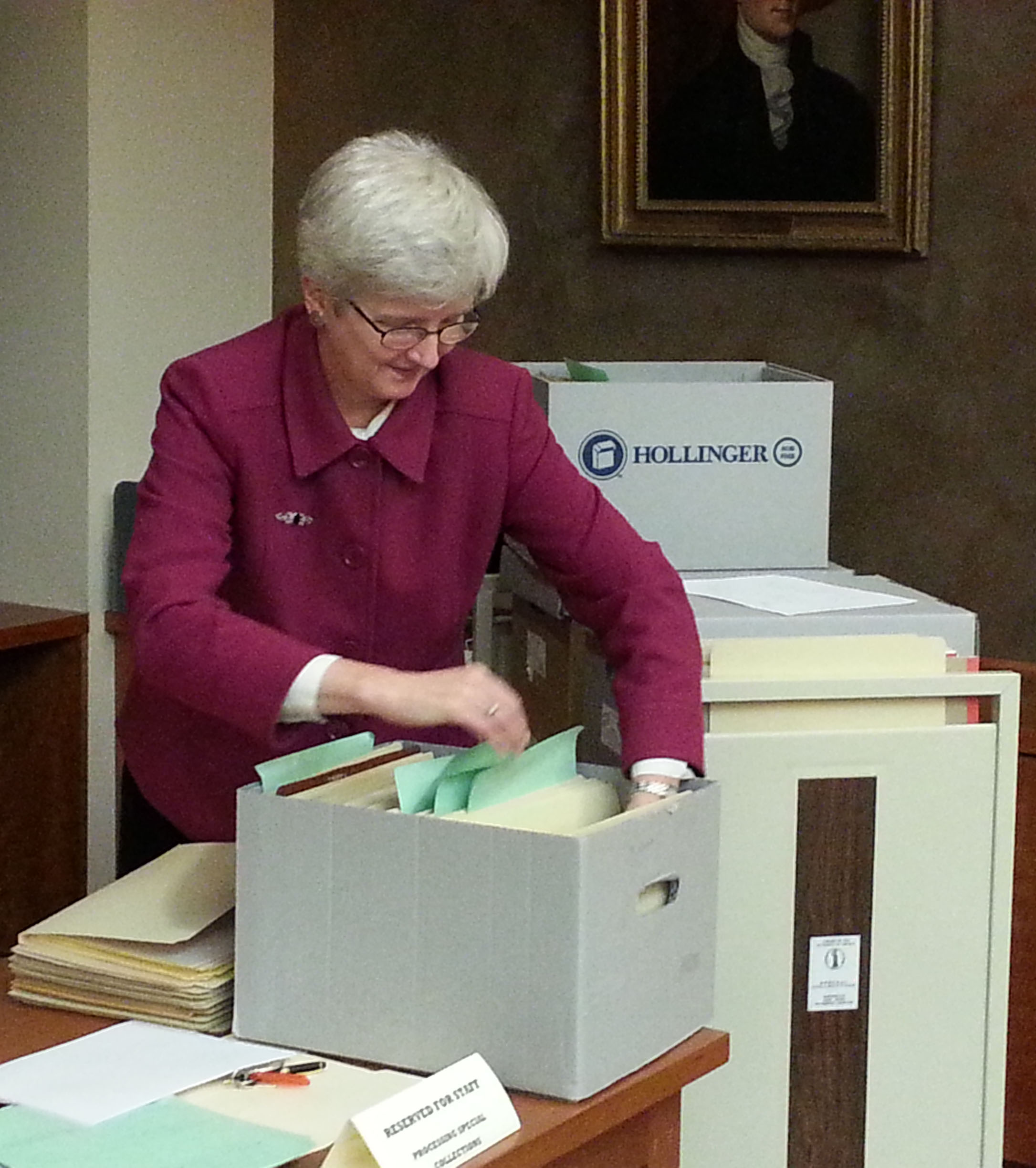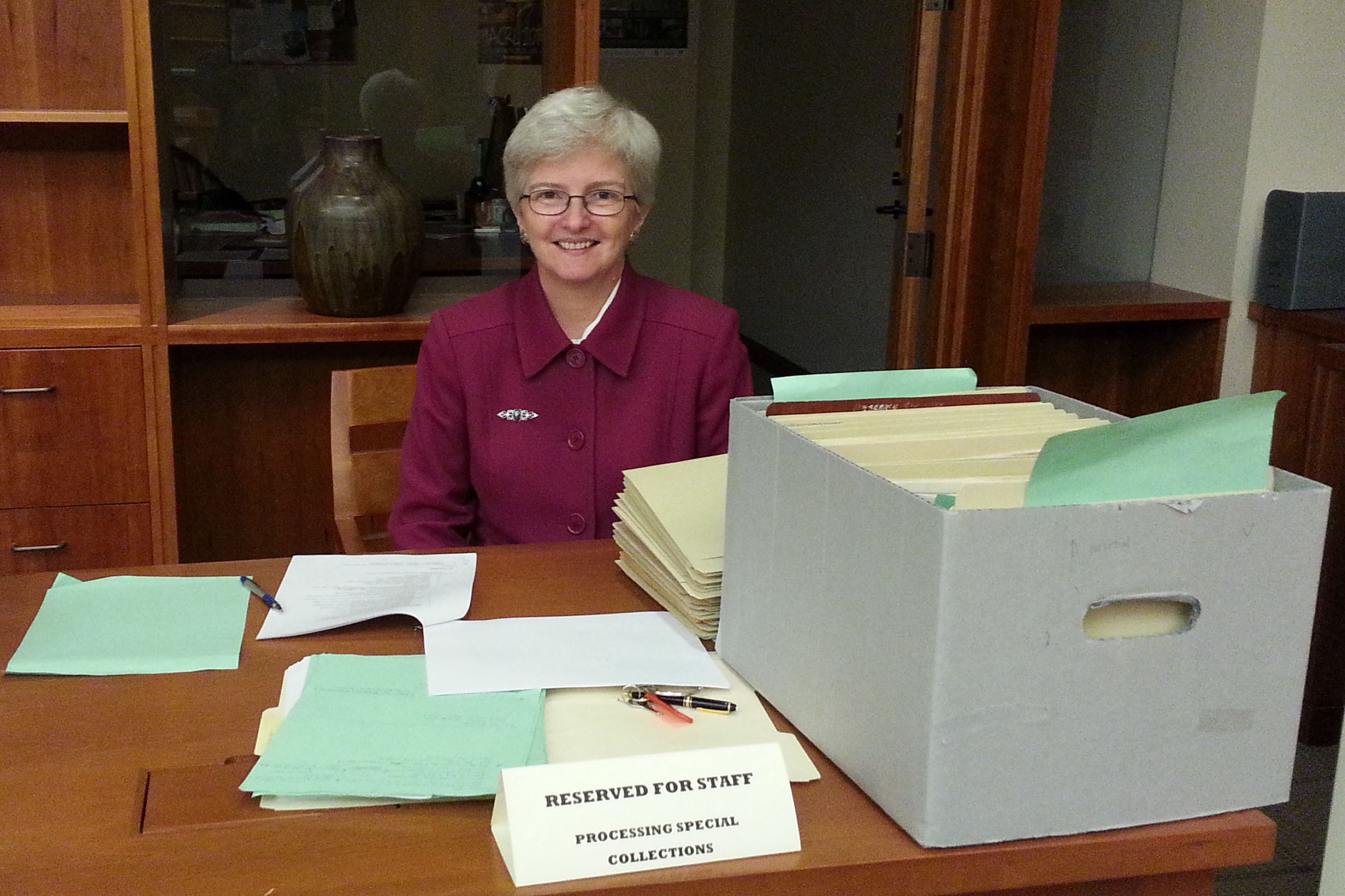This week, we are pleased to feature a guest post by Professor of History and Mathematics Karen V. H. Parshall. It is hard to express just how grateful we are for Professor Parshall’s exceptional generosity in volunteering to process the Gordon T. Whyburn Papers over the past several months. She has been a fixture in the back corner of the reading room, surrounded by boxes, and it was a bit sad when she finished the project because she’s been such a joy of a colleague. We asked if she’d be willing to share some of her observations on her experience with the blog.
In the course of my research toward a new book project on the history of American mathematics between the two World Wars, I needed to consult the collection of the influential American mathematician, Gordon T. Whyburn, which I knew had been deposited in UVa’s Department of Special Collections. On searching the online catalogue, though, I found a puzzling remark. The collection was in eleven “cubics.” Scratching my head, I e-mailed Heather Riser, Head of Reference and Research Services in Special Collections and my friend and colleague, to ask her what that meant exactly. I could almost hear the sigh in her reply: “It means that the collection has not been processed and is currently in eleven very large, uncatalogued boxes.”
After spending two days literally going through each box just to get a sense of what was there, I realized that the collection contained some amazing material and represented a resource key to my ongoing research. The only problem was … how to use it in its unorganized state? Thinking on that question for a couple of days, I, not without more than some trepidation, approached Heather with a disclaimer and a proposition. The disclaimer? I am definitely not a professional archivist, but I am a professional and seasoned user of archives. The proposition? Would Special Collections consider allowing me full access to the collection for a semester to put order into it and to make at least a first draft of a finding guide? After just a couple of days, the answer came back as “yes!”

Professor Parshall hard at work. Not only did she organize all the materials, she rehoused the entire collection, replacing dusty old file folders and boxes with fresh archival ones. (Photograph by Petrina Jackson)
What an interesting mess I confronted, yet what intense satisfaction I felt throughout the semester as I not only brought, little by little, order to chaos but also found an historian’s treasure trove! As I discovered, the Whyburn Papers open a fascinating window on the mechanics of creating a research department of mathematics from scratch and on the motivations for doing so in the South and in the depths of the Depression of the 1930s. Only archives have the potential to answer such thorny questions, and I am indeed lucky that the professional archivists in Special Collections trusted this amateur with the task of opening up the rich Whyburn collection.



I am happy you organized Gordon’s work. I am not an academic, but did know Gordon & Lucille.. My mother & father rented half of Lucille’s mother’s home after WWIi in Lewisville , TX.